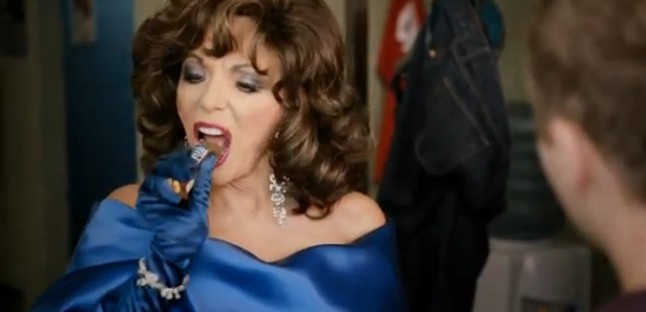Latest posts
A masterclass in creating value
What’s going on at parkrun?
Virtue-signalling all the way to the bank
Bud Light: brand purpose or virtue-signalling?
The Coddling of the American Mind, by Greg Lukianoff and Jonathan Haidt
Belonging, by Owen Eastwood
Such a simple thing
The Long Win, and The Scout Mindset
The Cult of We by Eliot Brown and Maureen Farrell
Coffee and covid modelling
By theme
Marketing strategy
Insight & metrics
Innovation & inspiration
Brand & positioning
Marketing communications
Business purpose
Leadership
By industry sector
Financial services
Retail
FMCG
Technology & start-ups
Consumer services
Business to business
Other sectors
By type
Books
Comment
Quotes
Thought leadership
The death of the 30 second TV ad was recently declared (again), this time by an advertising guru, Trevor Beattie. Yes, online overtook TV in its share of advertising spend some time ago, and YouTube is now the second largest search engine, as Google love to tell us. Along with the rise of social media and two-screen activity, Sky+ and TiVo, it seems quite plausible that the TV commercial should be replaced by advertising that we either choose – like online search – or can’t avoid – like the first five seconds on YouTube, after which the viewer can skip, and the advertiser doesn’t have to pay. Hence Trevor’s advice to ensure the message is in the first five seconds. I’m not sure. We don’t recommend tricking people into buying things they don’t want. So why try to trick people into seeing advertising messages? There is another option. This is to make ads that people are happy to watch. This is possible, but it needs a shift in approach. We know that good propositions are a win-win: they meet the needs of the customer on terms that are good for buyer and seller alike. That’s because buyers have a choice about who they buy from. But we don’t think about promotional messaging in the same way. In previous roles as a client of advertising agencies, I don’t recall ever giving much thought to whether the ads we were making would be enjoyable. The main preoccupation was with whether it would land the intended message. This is a bit selfish, isn’t it? ?The five-second approach seems to assume that people won’t want to hear your message so you have to gabble it quickly before they get their mouse to the little x in the corner, or skip on through the ad break. It’s the advertising equivalent of shouting out your message before people can get their fingers in their ears.
We watch TV because it informs, educates and entertains, as the BBC’s mission says. But mainly because it entertains. Advertisers’ purpose needs to be the same: if it doesn’t inform, educate or entertain we can skip it. Shouty ads about something people don’t want to hear are doing none of these things. By contrast, talented actors with a decent script can make a neat little piece of entertainment in thirty seconds – think of Simon at the door with his piece of toast in the BT ad when the Spanish girls come calling. I look out for new Aldi ads because they’re funny, and they make their point brilliantly. (Although since I never go to Aldi, I guess it also illustrates how there’s more to success in retailing than the products you stock.) Think of the Snickers ad with Joan Collins in the locker room of a football club. The payoff line, “You’re a right diva when you?re hungry”, is a rich expression of the insight. I love it. Celebs in ads can be good if they can act. Lionel Messi and Kobe Bryant in the Turkish Airlines ad do really well and we have a laugh at their expense. On the other hand, celebs who can’t handle it make five seconds too long. I cringe at the Santander ads in which innocent people are stalked in their own home, culminating in one apparently being threatened by Rory McIlroy, and with her own apple.
We also watch TV because other people do. That’s why 40% of Twitter activity in peak TV viewing time relates to TV. Word of mouth has always been there; social media is amplified word of mouth. The water-cooler moment is now online too. Even those who declare the end of TV advertising harbour dreams of their film going viral online. But to have any chance of being talked about, shared, or going viral, it has to be worth sharing, and that means it has to be enjoyable.
We still love TV in the UK – in fact TV viewing is growing – so there?s still a place for TV ads, but only those that people enjoy will be watched, shared, and talked about. So rather than worry about double-screening and ad-skipping, make the ad worth watching,
Now I come to think about it, the other thing Trevor Beattie is famous for is those Wonderbra posters. They didn’t inform or educate but I think half the population were entertained. I bet some people even looked at those for more than five seconds.
More posts on brand and marketing communications:
Yes there’s a crisis in brand trust but please, don’t try to be nice.
Latest posts
A masterclass in creating value
What’s going on at parkrun?
Virtue-signalling all the way to the bank
Bud Light: brand purpose or virtue-signalling?
The Coddling of the American Mind, by Greg Lukianoff and Jonathan Haidt
Belonging, by Owen Eastwood
Such a simple thing
The Long Win, and The Scout Mindset
The Cult of We by Eliot Brown and Maureen Farrell
Coffee and covid modelling
By theme
Marketing strategy
Insight & metrics
Innovation & inspiration
Brand & positioning
Marketing communications
Business purpose
Leadership
By industry sector
Financial services
Retail
FMCG
Technology & start-ups
Consumer services
Business to business
Other sectors
By type
Books
Comment
Quotes
Thought leadership
